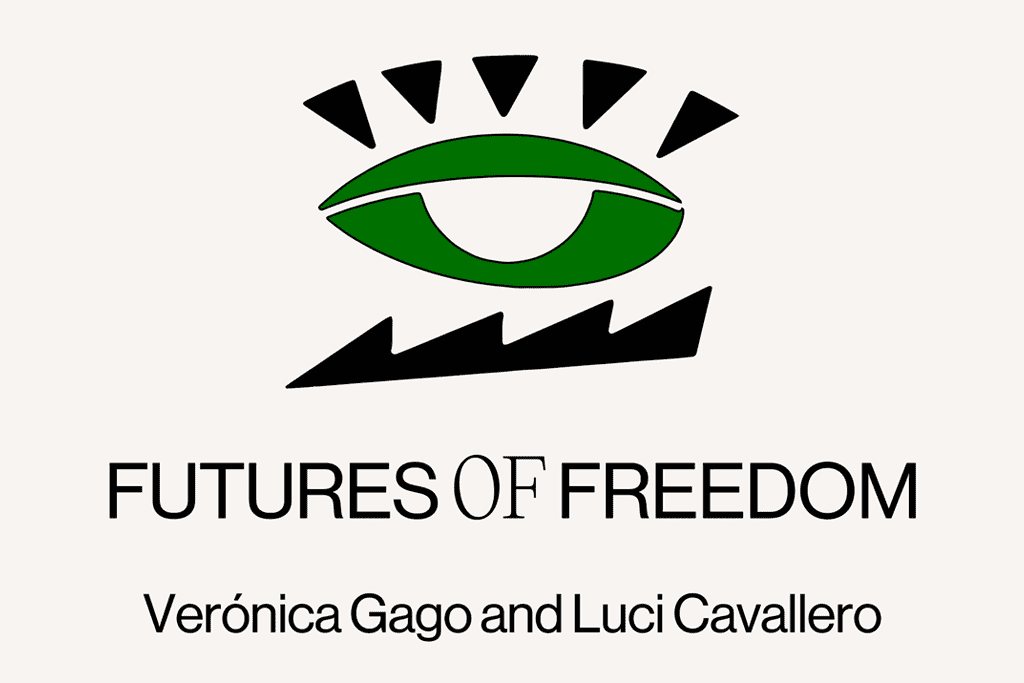

In April 2020, a month before restrictive measures were imposed in response to the pandemic, we wrote that "debt, housing and work" were the keys to a post-pandemic feminist agenda. We had no idea how long Covid would last, let alone how difficult it would become to talk about a "post". In the midst of concern for the urgent, one conversation thread in the feminist movement asked where we were going to cross paths, considering the street was first to be "suspended."
And how should one think about the spatiality of feminist demands when "houses" are designated the privileged safe place? How will this redefining of the domestic affect the dynamics of our demands, and what new aspects does the idea of essentiality bring with regard to this mutation of workplaces? We had just experienced a moment of effervescence in feminist mobilisations, of occupying the city in order to dismantle its fragmentation and closed circuits and now, suddenly, the streets seemed to empty.
The feminist movement launched initiatives, trials that challenged the first months of lockdown. Noises were made, there were virtual assemblies, food aid, graffiti, abortion campaigns and networks, WhatsApp groups for specific aid, and much more. "Feminist networks support us" was the catchphrase that illustrated the capacity to build infrastructure during emergencies, to reassemble resources, affection and knowledge, to insist on support in new circumstances, to create alerts, to develop a sense of urgency that didn't annul us.

Judith Butler wrote that sometimes revolution happens when no one wants to go home. This issue was mutating right in front of our eyes because: What happens when we have to stay indoors faced with the concern of infection? What home do we return to? What happens when that same home is besieged by debt and violence? And what happens when the home is not insured and the fear of eviction lurks? How do we respond when homes become spoils for financial capital and, simultaneously, spaces for an uninterrupted labour continuum? We went from fleeing and disarming the domestic as confinement, to experiencing an intensified and transforming domesticity, to having to endure an overload of hygiene and care tasks and, for some, to coexisting with aggressors. We believe it was fundamental to use the political tools of the street to put the home up for debate. It was like trying to dismantle the home with the tools of the struggle.
In our research and activism, we detected four dynamics that took root and intertwined in households during the pandemic:
- An increase in household debt to cover basic consumption (food and medicine) as a result of decreasing income.
- An increase in rental debt and increased exposure to evictions due to debt accumulation. This combines with the intensification of real estate speculation (both on the formal and informal market) through the increase (dollarisation) of rents and supply restriction in response to new legislation (Law 27.551).
- A reorganisation and intensification of reproductive (especially unpaid) and productive working hours within the same sphere;
- New financial technology (FinTech) intrusion processes within households, through mobile payments, e-wallets and digital banking.
These four dynamics show us how the home is becoming a key battleground. We will argue it is a space where financial processes and labour intensification are taking root. It is in this space, which capital historically sought to designate as "non-productive", that decisive factors of the current assessment are knotted together.
DEBT AT THE CORE
In our work Una lectura feminista de la deuda: Vivas, libres y desendeudadas nos queremos! (2019) (A feminist reading of debt) we pointed out how government debt in Argentina, exponentially accelerated by the IMF mega-loan approved by Mauricio Macri in 2018, resulted in adjustment policies that spilled over into households as domestic debt.
This reality particularly affected women in the popular sectors. Accelerated impoverishment implied a qualitative and extensive leap in pre-existent debt in many households: indebtedness to guarantee daily necessities and pay for services such as water, gas and electricity became a compulsive instrument. Debt, as financial technology, has become capillarised as a way of coping with precariousness. The peculiarity of this phenomenon is that indebtedness is no longer associated with the occasional consumption of a good or service, but has become a permanent and obligatory way of supplementing income in freefall. A whole new equation arises between income and debt when they (salaried or not) no longer guarantee reproduction. Here then is an important finding: there is a qualitative change in what household debt means when it is structured as a daily mandate, formulated as "getting into debt in order to live". It directly affects the relationship with future work. In fact, a key dimension in relation to the study of domestic indebtedness is to understand its relationship with unpaid work, which is mainly feminised. This approach, a methodological key to our feminist perspective on debt, is fundamental to understanding the impact of the pandemic on domestic spatiality. Contrary to the financial abstraction that pretends to be a mathematical number or a market index, debt is grounded in concrete bodies and territories from which it extracts value, and which it exploits in a differential way.
THE DOMESTIC DISPUTED
In recent years, as a result of the mass feminist mobilisations, occupying the streets has been a fundamental aspect of "de-confining" the home, of criticising its borders, of confronting the invisibilisation and privatisation of the tasks that are carried out within it. Feminism has shifted the lens of productive spatialities and, as Silvia Federici argues, allows us to quantify the length of the working day including kitchens and bedrooms. Let us also add neighbourhoods and community spaces. It is in this web of laborious spatiality where the task of reproducing life takes place and where work is done that mixes self-management with scarce resources, performing social tasks that complete and/or replace deficient or non-existent public services, while at the same time sustaining an available workforce at increasingly precarious levels.
As a result, some houses become nurseries due to the lack of vacancies in certain neighbourhoods, canteens are also extended to houses because they have grown too small, fairs serve as shelters for the doctor's office, street and school repairs are carried out by neighbourhood teams, support networks dedicated to gender-based violence are overloaded and, lest we forget, so are those offering assistance in the face of evictions.
When we speak of reproductive work, we are referring to work carried out in domestic territories, which are not only homes, but have become spaces of collective, territorial and neighbourhood reproduction in the face of the systematic dispossession that has deprived these places of basic forms of sustenance.
THE HOME-FACTORY
We understand that capital today is seeking to take advantage of this crisis by hyper-exploiting the domestic space. Could it be that the imperative of teleworking, home-schooling, and home-office, is taking the demand for productivity to the maximum in the home-factory and that its temporality will exceed the pandemic?
Meanwhile, delivery platforms guarantee precarious delivery logistics and supply some of the consumption for these hyper-productive households, which have almost no time to attend to some basic needs such as cooking.
Households themselves have become experimental spaces for new dynamics of capital. A sort of continuum of work seems to be anchored there that defies the division between public and private that structures the labour market. In fact, our hypothesis is that we are facing a restructuring of class relations with the reproductive sphere as its main stage. Now that the health emergency has passed its most extreme moments, these advances in labour flexibilisation that atomise workers and make us even more precarious are not receding.
Our hypothesis seeks to analyse how the place of home confinement has become a space of financial valorisation and how this has accelerated during the pandemic. We thus reverse the reading: from the bottom up. The everyday spaces of households have become financial "terminals" (where financial devices of debt, income and consumption mediation, and rent capture are directed) but they are also intensified as places of value production (reproductive work, telework and home work in new forms) which are exploited by different speculative circuits. In this domesticity, debt paradoxically highlights the combination between the possibility of resolving the emergency (taking on debt to pay the rent and avoid eviction, for example) and increasing the extraction of value (capturing and commanding the work to come), combining domestic space and financial technology in a singular way.
When we say that the home has become a favoured site for capital experimentation, we are not claiming that it is a closed or concluded process. Hence the importance of both local and transnational feminist dynamics: we are seeing an open dispute rather than definitive modifications in this vital space.
What agenda can we think of in the midst of this turbulence, which is also on the psychic, housing, labour, and relationship level? We want to contribute to making social reproduction visible in an expanded sense as a strategic sphere, because this is also where the programmatic thrust of a question arises: what does it mean to collectively re-appropriate the means of social reproduction? What struggles are articulated? What disputes over social wealth are evident?
The neoliberal dispossession of public services falls on social reproduction, which must be replaced with more reproductive work (if there are no or scarce nurseries, health services and water supply, it will be the neighbourhood and community schemes and arrangements and the work of women, lesbians, transvestites and transgender people themselves that will replace them). Domestic indebtedness is enmeshed in social reproduction, providing quick monetary solutions to the increase in the cost of daily life and to emergencies that are no longer exceptional.
Explaining and creating feminist pedagogy around why production relations, which have a privileged place in the reproductive sphere (violently attacked and made "insecure"), are changing, becomes a central task in order to understand the ways in which care and telework are hybridized.
We believe that feminist trade unionism is a way of organising demands by taking the broadening of the concept of work seriously and putting the spotlight on social reproduction and how it has been impacted, assaulted and exploited during the pandemic.
Verónica Gago is a lecturer at the University of Buenos Aires and the National University of San Martín and a researcher at the National Council for Scientific and Technical Research (CONICET). She is the author of La razón neoliberal. Economías barrocas y pragmática popular (Neoliberal Reason. Baroque Economies and Popular Pragmatics) and La potencia feminista. O el deseo de cambiarlo todo (Feminist Power. Or the Desire to Change Everything).
Luci Cavallero is a feminist, sociologist and researcher at the University of Buenos Aires. Her work addresses the link between debt, illegal capital and violence. Together with Verónica Gago, she has published Una lectura feminista de la deuda (A feminist reading of debt).
This essay is part of the "Futures of Freedom" collection of Progressive International's Blueprint pillar. To know more, please write to [email protected]
Design: Gabriel Silveira


